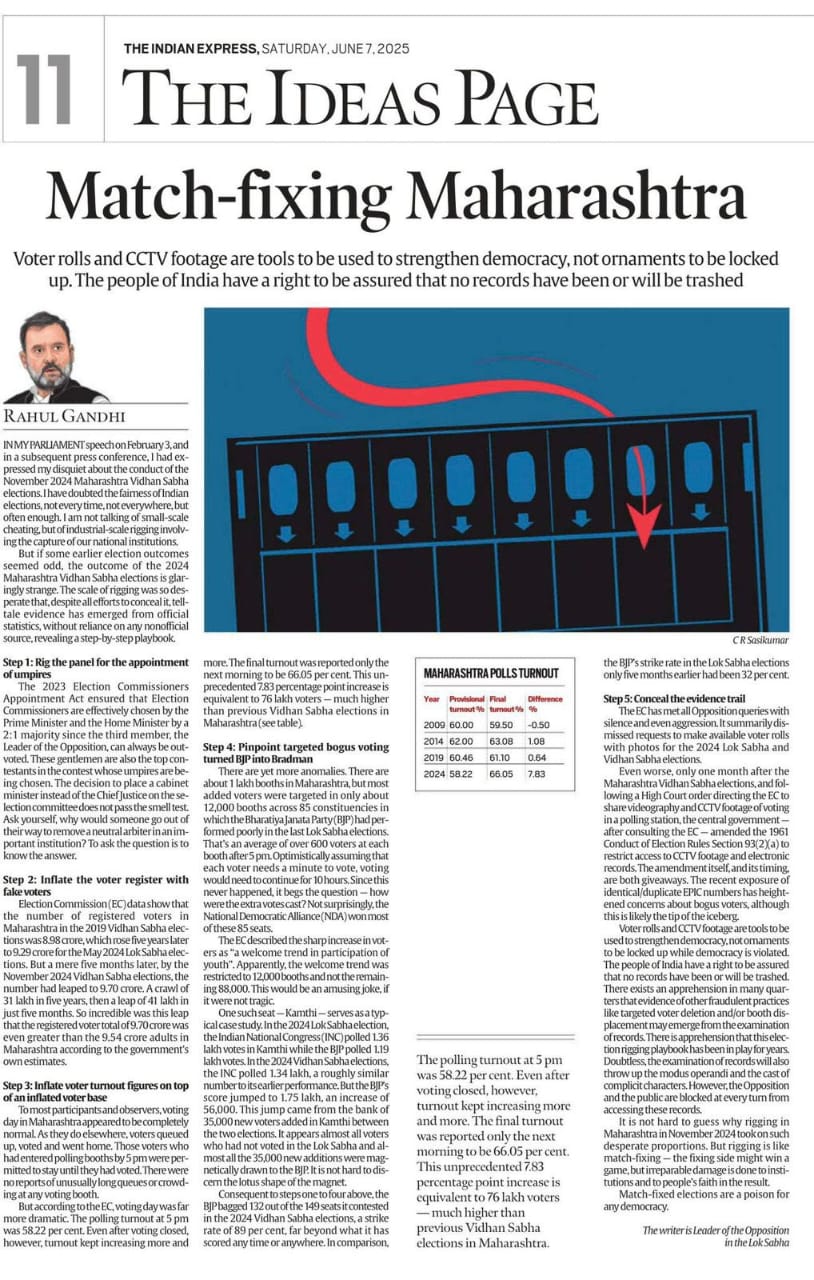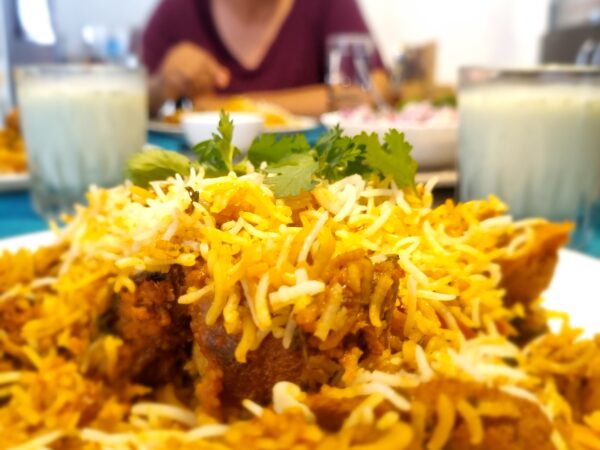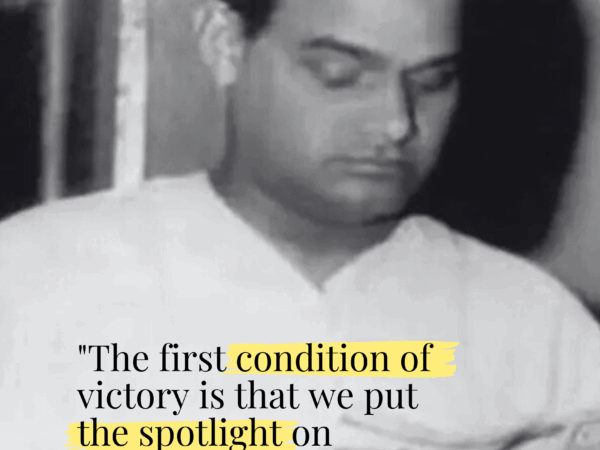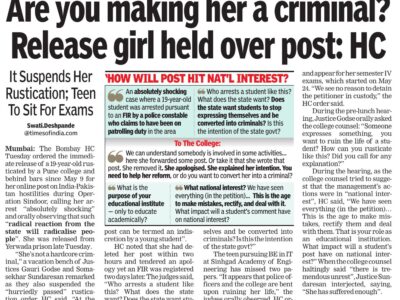Journalism of Courage, they call it.
One assumes this is the kind of courage that allows a major national newspaper to publish an incendiary column by the Leader of the Opposition on a Saturday, only to wake up in a cold sweat the next morning and issue a hurried, anonymously sourced, pseudoscientific “fact-check” of that very article before Sunday brunch. The speed was dazzling. Less than twenty-six hours after Rahul Gandhi alleged electoral manipulation in Maharashtra, The Indian Express had assembled a full-blown counter-brief, complete with anonymous officials, institutional denials, and just enough data to make it all look terribly neutral.
One wonders whether this is courage or merely a form of panic masquerading as an editorial principle. A kind of performative stenography where the stenographer occasionally glances nervously over their shoulder before hitting ‘publish’.
Now, to be absolutely clear, no one expects the Express to take Rahul Gandhi’s word as gospel. One would merely hope that they reserve this forensic rigour for everyone. Yet oddly, this instinct for truth-seeking tends to vanish the moment a government minister opens their mouth.
Take, for instance, that gloriously surreal moment in 2019 when Finance Minister Nirmala Sitharaman, asked about rising onion prices, replied flatly, “I don’t eat onions.” It was not satire. It was said on the floor of Parliament, while prices were soaring and millions of families were scrambling to afford basic staples. There was no Sunday morning Express headline reading, “FM’s claim on onions doesn’t match inflation data, economists say.” No institutional panic. No editorial pearl-clutching. The Minister’s personal dietary preferences, it seems, were allowed to stand in for economic policy.
Or let us recall the truly national trauma of the Delta wave. At its peak, cities ran out of oxygen. Bodies floated down rivers. Crematoriums burned non-stop. But the government insisted that only a few thousand had died, and worse, that no deaths had occurred “due to oxygen shortages.” Independent studies, including by The Lancet, The Economist, and India’s own Civil Registration System, placed the likely death toll at ten to thirty times the official figure. Yet The Indian Express, ever the cautious scribe, did not offer a furious rebuttal headlined, “Government’s Covid toll claim doesn’t match ground reports, experts say.” In fact, they tried to do the exact opposite, trying to talk about “the nuances being missed in the debate.“ on two occasions just in May 2022 (here and here). There was no blow-by-blow takedown of state data discrepancies, no forensic comparison of official figures versus actual funerals. Because to do that would have required real courage. Not the kind you put in your masthead, but the kind you need to risk displeasing power.
Then again, courage has always been selectively rationed.
Consider demonetisation. When 86% of the currency in circulation was nullified overnight, leading to economic mayhem and an imploding informal sector, The Indian Express reported it, yes, but never in the tone or tempo reserved for Rahul Gandhi. No headline ever blared, “PM’s black money claim doesn’t match RBI data.” No rapid rebuttal appeared when the Reserve Bank quietly announced that 99.3% of all banned currency had returned. Apparently, slow-motion ruin deserves only slow-motion journalism.
And what of Vyapam? That glorious laboratory of corruption in Madhya Pradesh where recruitment exams were sold like vegetables and suspicious deaths occurred with the regularity of monsoon showers. There were murmurs. Reports (you can see their entire “courageous” coverage here and show me a single article which asks questions or points fingers to those in power). Even editorials. But never the sort of hair-trigger “scrutiny” that Rahul’s op-ed provoked. Dozens of young people died. A journalist investigating the case died in his hotel room. But The Indian Express? It remained serenely unhurried.
Or the Rafale deal. A high-value, high-decibel defence transaction that sparked allegations of cronyism and secrecy. The government issued its denials. France nodded helpfully. And the Express, like most of its peers, took the hint (you can see their entire coverage of the Rafale deal and the alleged scam here). There was no 26-hour data blitz. No house-written audit. No anonymous bureaucrat whispering that things didn’t quite match up. Just polite, plodding reportage. A minor storm. Not a war.
Of course, one must not forget the rather curious silence that greets the BJP-RSS commentariat, who have been contributing columns to mainstream newspapers with admirable regularity and not so much as a raised eyebrow in response. No fact-checks have materialised on the front page. No overnight rebuttals from anonymous officials have burst forth from the bowels of editorial conscience. Not a single “scrutiny” leapt to its feet in defence of truth, reason, or grammar.
Perhaps this is because these writers are paragons of balance and intellectual rigour, their neutrality so flawless that even bias bows before them. Or maybe their arguments were so watertight, so devastatingly persuasive, that editors could find no daylight through which to drive a counterpoint. Or, just possibly, the truth is a little less flattering. Perhaps these authors were never seen as dangerous to the narrative the owners and editor of the newspaper were gently “requested” to adhere to. Perhaps their words were not considered weighty enough to move public thought, and their logic, not sharp enough to require surgical dismantling. Unlike Rahul Gandhi, whose every utterance apparently causes such editorial unease that it must be rebutted before the poor man has finished breakfast.
How very courageous indeed.
Which brings us back to Rahul Gandhi.
Why is it that when he writes an op-ed, never mind its accuracy (though it did raise some very serious concerns; concerns the ECI must address. Officially. With evidence), never mind its tone (what other tone would you like, kind Sir, with your democratic right to dissent?), that is when the Express feels compelled to don its cape and perform an editorial citizen’s arrest (being the judge, jury, and executioner, rather conveniently; very courageous)? Why does its appetite for balance spike only when the subject is inconvenient to the ruling dispensation? Why does it do this in a day (26 hours, give or take)?
It is not journalism of courage. It is journalism of containment. The paper didn’t scrutinise his claims. It neutered them (with an article that was already ready to go, even as its press was printing Gandhi’s column). It pre-digested them for its readers, wrapped them in caveats, quotes, and data graphs, and re-issued them as controlled substances.
The only match-fixing happening here is in the narrative ring, where one side is allowed to punch freely, while the other is forced to wear editorial gloves.
If this is what courage looks like, one dreads to imagine cowardice.
And yet, here we are.
Publishing rebuttals to your own guest columnists before they’ve finished their morning coffee. Refusing to call out fantastical government claims unless someone else does it first. Crafting a façade of neutrality while institutionalising submission.
Courage, like onions, might make you cry.
But that is no reason to avoid it altogether.

















